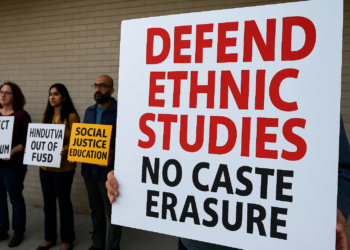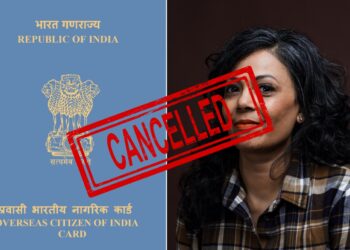A Prestigious Honour Enhances India’s Presence in Global Nuclear Science
An Indian student has been awarded the Marie Sklodowska-Curie Fellowship for Women in the Nuclear Field at a university affiliated with Rosatom, Russia’s state nuclear energy corporation. The fellowship, established by the International Atomic Energy Agency (IAEA), aims to encourage more female participation in nuclear-related fields, both in research and industry.
This recognition reflects the growing role of Indian scholars on the global academic stage and highlights the increasing visibility of women in scientific disciplines traditionally underrepresented by gender. The award underscores India’s expanding involvement in international nuclear education and cooperation.
About the Marie Sklodowska-Curie Fellowship
Named after Nobel Laureate Marie Sklodowska-Curie, the fellowship programme was initiated by the IAEA in 2020 to promote gender diversity in nuclear science and technology. It is awarded to outstanding female students from IAEA member states pursuing a master’s degree in nuclear-related fields.
Key features of the programme include:
- Up to €20,000 in academic scholarships to cover tuition and living expenses
- Internship opportunities at IAEA offices or affiliated institutions
- Mentoring and networking platforms to connect with global experts
- Support for interdisciplinary research in nuclear safety, non-proliferation, and environmental protection
- Partnerships with academic institutions worldwide, including those associated with Rosatom
The programme supports over 100 fellows from multiple countries annually, contributing to long-term goals of sustainable development, clean energy, and scientific inclusion.
Rosatom and its Educational Collaborations
Rosatom, the Russian state atomic energy corporation, plays a key role in international nuclear energy development. It has expanded its educational partnerships globally, promoting nuclear education and research in various regions, including Asia, Africa, and Latin America.
The fellowship recipient is enrolled at one of Rosatom’s partner universities, a category that includes institutions specialising in nuclear engineering, reactor physics, radiation protection, and energy systems. These universities collaborate closely with Rosatom on:
- Advanced nuclear research programmes
- International student mobility and academic exchange
- Industry internships and laboratory training
- Faculty development and joint research initiatives
- Support for global nuclear workforce development
These partnerships are intended to strengthen educational capacity in nuclear science and promote peaceful uses of nuclear technology, in alignment with the IAEA’s global mandate.
India’s Role in Nuclear Science Education and Research
India has maintained a long-standing commitment to nuclear energy and research through its institutions such as:
- Bhabha Atomic Research Centre (BARC)
- Indira Gandhi Centre for Atomic Research (IGCAR)
- Nuclear Power Corporation of India Limited (NPCIL)
- Collaborations with IAEA and international academic institutions
Indian students and professionals have participated in numerous global programmes related to nuclear energy, environmental safety, non-proliferation, and reactor design.
India also continues to enhance its bilateral cooperation with countries like Russia, particularly through joint nuclear projects such as the Kudankulam Nuclear Power Plant, built with Russian assistance.
The award of the Marie Sklodowska-Curie Fellowship to an Indian student strengthens the narrative of international academic collaboration and reinforces India’s positioning as a critical contributor to peaceful nuclear development.

Fellowship Impact and Academic Journey
While the recipient’s name has not been disclosed in the public release, the significance of this achievement lies in its broader implications for women in science and India’s representation in global nuclear education.
According to the Economic Times, the awardee will undertake a master’s programme focusing on nuclear science, safety, and technology at a university recognised for its contribution to research under Rosatom’s educational umbrella.
Her programme will include:
- Intensive coursework in nuclear physics and energy systems
- Exposure to practical reactor operations and lab simulations
- A research thesis related to nuclear safety, radiation protection, or sustainable energy
- Participation in seminars and expert dialogues on global nuclear policies and regulations
The fellowship not only supports her education financially but also enables professional growth through exposure to international nuclear energy frameworks.
Gender Inclusion in Nuclear Fields
The IAEA’s Marie Sklodowska-Curie Fellowship is part of broader efforts to close the gender gap in the nuclear sector. Globally, women represent less than 30% of the workforce in nuclear science and technology, according to IAEA statistics.
The fellowship contributes to:
- Increasing the visibility of female nuclear scientists and engineers
- Empowering women from developing nations to pursue STEM careers
- Enhancing global nuclear safety by including diverse perspectives
- Promoting gender-balanced participation in energy and climate change solutions
India has also launched initiatives to improve gender representation in STEM, including scholarships, research grants, and institutional support, aligning with the aims of this international fellowship.
Future Prospects and India’s Global Integration
The recipient’s award comes at a time when India is strengthening its position as a responsible player in civil nuclear energy. The country has consistently advocated for peaceful nuclear technology applications and is expanding its domestic nuclear capacity with support from international partners.
The inclusion of Indian students in globally competitive fellowships like the Marie Sklodowska-Curie Programme reflects:
- The international recognition of Indian academic and scientific capabilities
- Strengthened Indo-Russian cooperation in the energy and education sectors
- India’s broader vision to meet sustainable development and energy goals through nuclear power
- Strategic alignment with United Nations Sustainable Development Goals (SDGs), particularly Goal 5 (Gender Equality) and Goal 7 (Affordable and Clean Energy)
To explore related updates on Indian students abroad and academic achievements, readers can refer to NRI Affairs’ education section.
A Step Forward in Science, Gender Equity, and Global Collaboration
This recognition of an Indian student through the Marie Sklodowska-Curie Fellowship for Women in the Nuclear Field represents more than just individual success. It illustrates India’s growing global academic footprint, international collaboration in nuclear science, and continued progress in gender equity across STEM sectors.
As India continues to invest in scientific education and global partnerships, such fellowships reaffirm the country’s commitment to peaceful nuclear development, inclusive innovation, and the empowerment of future leaders in science and technology.











